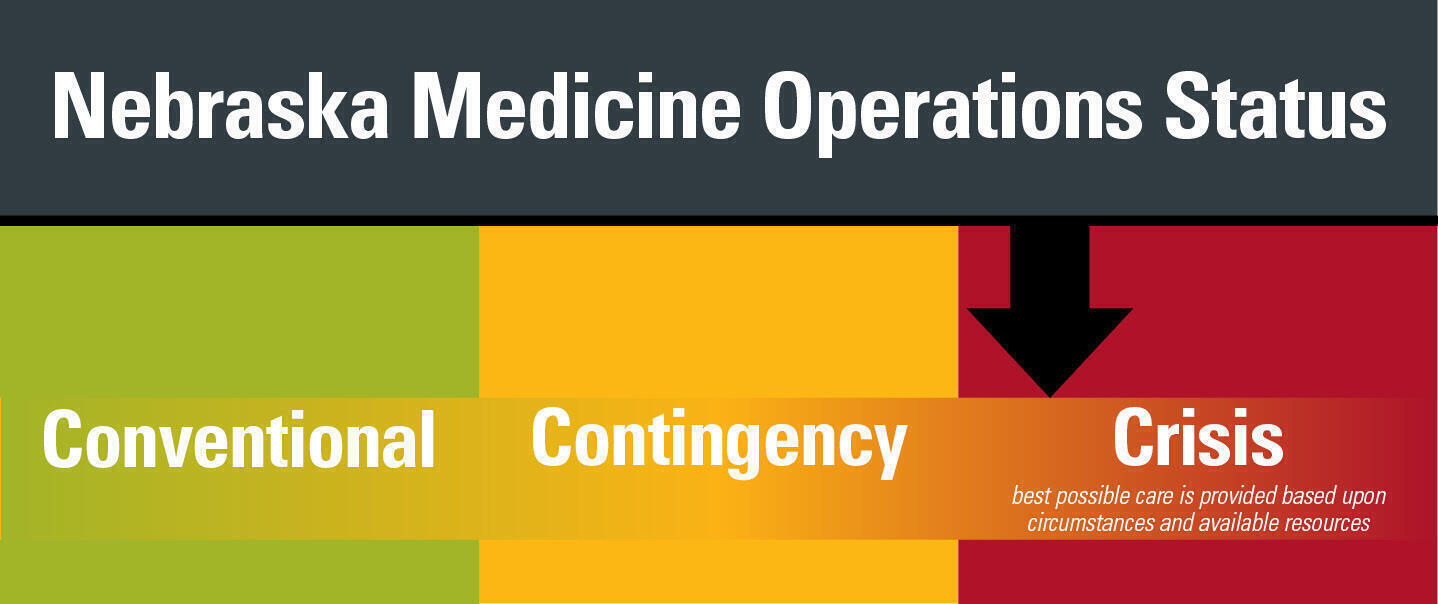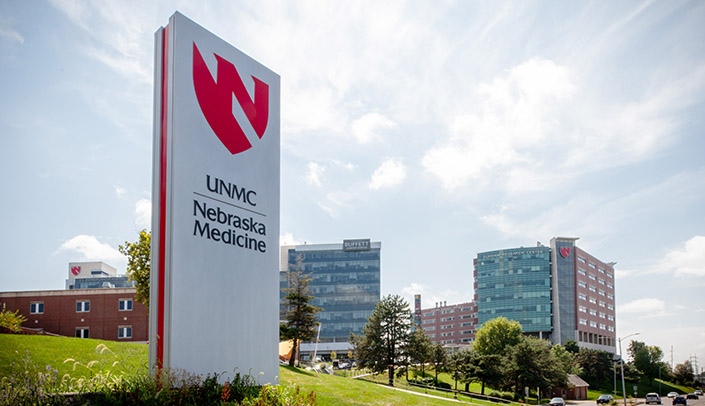Thursday morning, Nebraska Medicine announced that it has activated its Crisis Standards of Care plan. This decision by Nebraska Medicine is intended to help guide decisions when the demand for health care resources exceeds availability. The plan is based on core values that include Nebraska Medicine’s commitment to safety, quality, transparency, equity and fairness.
"We are facing a situation more difficult than any so far in the pandemic, and are taking this step to assure patient safety, quality of care and to support all colleagues," CEO James Linder, MD, said. "The omicron variant is spreading in record numbers and is affecting not only the number of patients who need us but the number of colleagues that we have available to care for them. COVID-19 is changing the care environment and level of care we are able to provide: in our hospitals, our clinics and our operating rooms."
Nebraska Medicine activated the plan because the community’s demand for health care has begun to exceed the available resources. The hospital now is in the first stage of a multistage of its crisis continuum — these steps are part of an effort to prevent more difficult decisions that may become a reality at a later time depending upon the evolution of this stage of the pandemic, Dr. Linder said.
 |
For more about what this means, see this Q&A from Nebraska Medicine: "We have activated our crisis plan"
With the Crisis Standards of Care plan activated, patients may experience some changes from previous appointments or hospital stays. Here are some examples of how patients could be impacted:
- Patient appointments may be rescheduled
- Fewer appointments may be available
- Some types of surgeries may be postponed
- Clinical trials may be delayed or paused
- Staff may be asked to support personnel
- Some types of patient transfers may be denied
- Areas such as or conference rooms may be configured for care
"Our crisis standards of care plan is based off the state plan, which was created early in the pandemic by clinical, legal and ethical experts from across Nebraska," Dr. Linder said.
